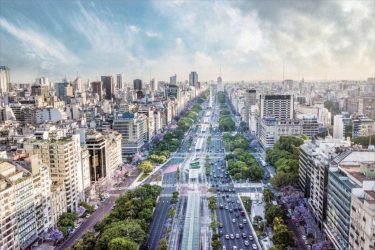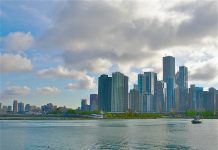 Political upheaval has thrown the future of Buenos Aires’ planned roll-out of online betting and gaming into doubt. Jake Pollard looks to provide clarity on an increasingly murky situation.
Political upheaval has thrown the future of Buenos Aires’ planned roll-out of online betting and gaming into doubt. Jake Pollard looks to provide clarity on an increasingly murky situation.
The sports betting regulatory saga that is unfolding in Argentina’s Buenos Aires is likely to carry on for some time and more twists are to be expected in the coming months.
Hopes of obtaining a licence from the provincial authority, Instituto Provincial de Lotería y Casinos (IPLyC), were high among the 20 to 25 international operators which applied in partnership with local companies. That total was later reduced to a total of 17 applicants, but their optimism has dampened considerably following the country’s general elections last December.
Buenos Aires governor, Maria Eugenia Vidal, who signed the official decree to regulate online gaming and betting in the province in February 2019 and was seen as one of the main movers behind the new regulations, lost her governorship to Axel Kicillof of the allied Justicialist and Frente de Todos parties in the primary elections that ran in August.
That win presaged the presidential victory for the Justicialist/Frente coalition led up by Alberto Fernández. As a result, no one is quite sure how the regulatory process will now evolve.
Some observers have become cynical about the whole project. One contact pointed out that the Buenos Aires authorities are in desperate need of funds and were more than happy to cash in on the US$120,000 up front fees required of the preliminary process. This was then compounded when news came out that the provincial authority Instituto Provincial de Lotería y Casinos (IPLyC) had decided to hand out licences to just seven of the 17 companies that had applied for a permit.
The lucky seven
Shortly after the general elections, Spanish language website gamingandmedianews.com published an article claiming the following seven joint venture partnerships had been approved for a provincial licence:
- ArgenBingo – William Hill
- Bingo Pilar – Paddy Power Betfair
- Pasteko – Hillside (Bet365)
- Hotel Casino Tandil – Playtech
- Boldt – 888
- Atlántica de Juegos – The Stars Group
- BinBaires – Intralot
Roman Frymer, co-founder of Gaming and Media News, told iGaming Business that it is unclear what will happen next. “What we do know from our contacts is the following. There was an official resolution from IPLyC that decided to allocate the licences to those (seven) companies.
“However, this might have been a ‘political operation’ from the previous incumbents (Cambiemos party) aimed at the new Frente government. Also, the decision to launch the resolution was a recommendation that came from an audit made by the former government and so far, the licences have not been granted.
“There is also no clarity on who will lead IPLyC going forward. Omar Galdurralde was installed as its new boss shortly after the elections, but Governor Kicillof has now appointed Carlos Bianco, a long-time associate of his, as head of the authority.
“However, this could be a temporary appointment in order to resolve some urgent economic issues in the organisation.”
Frymer says he doesn’t believe more companies will get licensed but is in little doubt that the licensing process will go ahead for the lucky seven that have been picked.
“The Buenos Aires government is in urgent need of funds, so the process will follow. There might be a few changes in the text of the regulation, but we believe this will be solved in Q1 or Q2 of this year.”
The other applicants that were not on the lucky list, among them Sisal, Betcris, Codere and Betway, are of course unhappy about the turn of events. One contact who works for one of those groups told iGaming Business: “Argentina is a very political country and there will be ongoing discussions about whether or not to increase the number of companies that can get a licence for the province.
“There will likely be some movement when politicians return to work in mid-January [at the time of writing] and potentially some actual news by early February.
“In addition, the companies that were rejected have a right to contest and challenge IPLyC’s decisions.”
So serious regulatory lobbying will go on behind the scenes. Competition is another factor. If more companies are licensed there will be more competition for customers, but that will also mean more marketing and sponsorship budgets, and, of course, more licensing fees and tax revenues. In addition, “the market can sustain 15 operators”, iGB’s contact claims.
“Argentine players are enthusiastic punters, enjoy igaming and are also familiar with online payments and cryptocurrencies. One of the keys to success will be quickly establishing marketing and promotion activities with good contacts that can get coverage.”
Inner city vs. province
Nominally, the Judicialist/Frente stance is to be opposed to regulation of the online betting and gaming sector in Argentina but a complete shutdown of the regulation seems unlikely. When it comes to jurisdictions, IPLyC will regulate the province of Buenos Aires, while the city’s gaming and betting regulation will be managed to Loteria de la Ciudad Buenos Aires (Lotba), which has announced that it will not cap the number of licences it will grant.
Both regulatory bodies have said they will collaborate to regulate the igaming market between their respective jurisdictions. But doubters will bring up the obvious question of whether there will be friction if companies get licensed with Lotba but not with IPLyC. This could mean some are permitted to operate within the city limits but not in the wider province, and vice versa.
The situation is further complicated by the 30% drop in the value of the Argentine peso that came with Fernandez’s win, as markets and corporations get nervous about an interventionist, left-leaning government.
Gambling companies that had put forward their candidacies for one of the seven igaming licences in the province with investments earmarked in US dollars will be looking on anxiously. Consumers have already lost a big chunk of their purchasing power, which will surely affect their discretionary spend.
The regulatory process has moved forward over the past year in Buenos Aires Province, but it has also stood out for its arbitrary and somewhat unpredictable nature. Having said that, all stakeholders seem to think a suitable arrangement will somehow be found.
In addition, many believe that once the Buenos Aires (city and province) regulation is up and running, other states across Argentina will start rolling out their own igaming regulations and calling for applications. With many placing Argentina in close range to Brazil and Mexico when it comes to market potential, the drive to establish a regulated foothold in the country is understandable.
Buenos Aires licensing process: What we know so far
The Buenos Aires Provincial Institute of Lottery and Casinos (IPLyC) will regulate the sector. Seven licences will be available and operators will be subject to a 25% tax rate on gross gaming revenues.
- According to local media, IPLyC has so far granted seven licences, but sources believe this is likely to change.
- The Buenos Aires Provincial Legislature gave its final approval to the 2019 Budget at the end of 2018, thereby authorising interactive gambling within the province.
- The law imposed a tax rate of 15% of gross win on interactive casino and sports betting, and an additional 2% withholding tax on players’ gaming machine and bingo winnings.
- Legislators of the Autonomous City of Buenos Aires passed legislation authorising interactive gambling and sports betting within the province in December 2018.
- The bill imposed an incremental tax rate at 6% gross win, increasing up to a maximum of 25% gross win. The state lottery, Loteria de la Ciudad (Lotba), was granted authority to call for tender processes and award licenses to commercial operators.
- The governments of both the Buenos Aires Province and City announced they would collaborate to effectively regulate the interactive gambling market between their respective jurisdictions.











